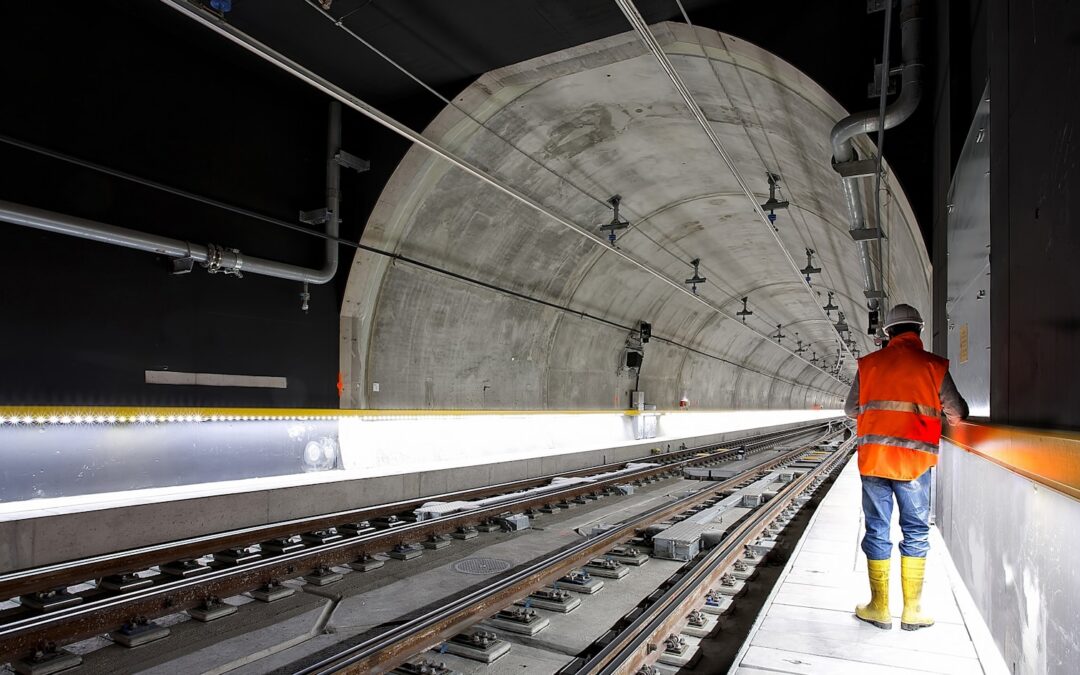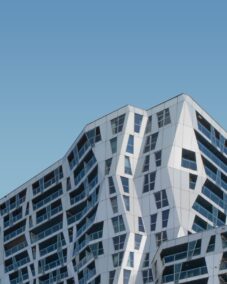The Role of Nanomaterials in Revolutionizing Construction
Introduction to Nanomaterials in Construction
Nanomaterials are playing an increasingly pivotal role in the construction industry, offering unparalleled enhancements in the strength and durability of construction materials. As business executives and entrepreneurs in regions like Saudi Arabia and the UAE seek to push the boundaries of architectural innovation, nanotechnology presents a groundbreaking avenue for achieving these goals. The integration of nanomaterials into construction materials not only improves their physical properties but also contributes to sustainability and efficiency, which are critical in the fast-evolving landscape of cities such as Riyadh and Dubai.
Nanomaterials are defined as materials with structural components smaller than 100 nanometers. Their small size allows for unique interactions at the molecular level, leading to significant improvements in mechanical properties such as tensile strength, elasticity, and resistance to wear and corrosion. In the construction sector, these enhancements translate into more robust and longer-lasting buildings, reduced maintenance costs, and improved safety standards. This technological advancement aligns with the ambitious infrastructure projects and smart city initiatives that are becoming increasingly prevalent in the Middle East.
The application of nanomaterials extends across various aspects of construction. For instance, incorporating carbon nanotubes into concrete can dramatically increase its compressive strength, making it ideal for high-rise buildings and large-scale infrastructure projects. Similarly, nanocomposites can be used in coatings to provide superior protection against environmental factors, thereby extending the lifespan of structures. As such, the adoption of nanomaterials is not just a trend but a transformative shift that promises to redefine construction practices and outcomes in the region.
Benefits of Nanomaterials for Building Resilience
The use of nanomaterials in construction significantly enhances the resilience of buildings, which is particularly crucial in areas prone to extreme weather conditions or seismic activities. In regions like Saudi Arabia and the UAE, where harsh environmental conditions are a constant challenge, the ability to construct resilient buildings is invaluable. Nanomaterials such as nanosilica, nano titanium dioxide, and carbon nanotubes offer remarkable properties that make construction materials more resistant to environmental stressors.
Nanosilica, for example, can be added to concrete to increase its density and reduce its permeability, which helps prevent water ingress and subsequent structural damage. This is particularly beneficial in coastal cities like Dubai, where high humidity and saltwater can cause significant deterioration in conventional construction materials. Similarly, nano titanium dioxide can be used in coatings to create self-cleaning surfaces that degrade organic pollutants, keeping buildings cleaner and reducing maintenance efforts.
Moreover, carbon nanotubes embedded in construction materials provide exceptional strength-to-weight ratios, enhancing the load-bearing capacity of structures without adding significant weight. This makes them ideal for constructing earthquake-resistant buildings in seismic zones. The ability to absorb and dissipate energy effectively means that structures are less likely to suffer catastrophic failure during an earthquake, thereby safeguarding lives and property. The integration of these advanced materials into construction practices represents a forward-thinking approach to building design and engineering in the Middle East.
Nanotechnology and Sustainable Construction
Sustainability is a key consideration in modern construction, and nanotechnology offers promising solutions to meet the growing demand for eco-friendly building practices. In Saudi Arabia and the UAE, where sustainability is becoming a core component of urban development strategies, nanomaterials can play a crucial role in reducing the environmental impact of construction activities. By improving the efficiency and performance of construction materials, nanotechnology contributes to more sustainable building practices.
One of the most significant ways nanomaterials promote sustainability is through their ability to enhance the energy efficiency of buildings. For instance, nano-enhanced insulation materials provide superior thermal performance, reducing the need for heating and cooling and thus lowering energy consumption. This is particularly relevant in the hot climates of the Middle East, where air conditioning accounts for a substantial portion of energy use. By improving insulation, nanotechnology helps reduce the carbon footprint of buildings and supports the region’s sustainability goals.
Additionally, nanomaterials can be used to develop more durable and longer-lasting construction materials, reducing the need for frequent repairs and replacements. This not only conserves resources but also minimizes waste generation, contributing to a circular economy. Furthermore, the incorporation of photocatalytic nanomaterials in building surfaces can lead to the development of self-cleaning and air-purifying structures, improving urban air quality and enhancing the overall livability of cities.
Executive Coaching Services and Effective Communication
As the construction industry evolves with the adoption of advanced technologies like nanomaterials, the role of executive coaching services in facilitating this transition becomes increasingly important. Effective communication and leadership are essential for managing the integration of new technologies and ensuring that all stakeholders are aligned with the strategic objectives. Executive coaching can help business leaders in Saudi Arabia and the UAE develop the skills needed to navigate this complex landscape and drive successful outcomes.
Executive coaching services provide tailored support to business leaders, helping them to enhance their leadership and management skills. This includes developing effective communication strategies that are crucial for fostering collaboration and innovation. In the context of incorporating nanomaterials into construction practices, executives need to clearly articulate the benefits and potential challenges to their teams, stakeholders, and clients. Effective communication ensures that everyone is on the same page and works towards a common goal, facilitating smoother implementation and greater success.
Furthermore, executive coaching can help leaders build resilience and adaptability, which are essential qualities in a rapidly changing industry. By equipping leaders with the tools to manage change effectively, coaching services enable them to drive continuous improvement and innovation. This is particularly relevant in the construction sector, where the adoption of new materials and technologies can pose significant challenges. With the right guidance, business leaders can navigate these challenges and leverage the benefits of nanomaterials to achieve their strategic objectives.
Conclusion: The Future of Construction with Nanomaterials
The future of construction is being shaped by the remarkable advancements in nanotechnology, offering new possibilities for enhancing the strength, durability, and sustainability of building materials. In regions like Saudi Arabia and the UAE, where ambitious infrastructure projects and smart city initiatives are transforming urban landscapes, the adoption of nanomaterials represents a significant leap forward. By integrating these advanced materials into construction practices, business leaders and entrepreneurs can achieve greater resilience, efficiency, and sustainability in their projects.
As the construction industry continues to evolve, the role of executive coaching services and effective communication becomes increasingly critical. Business leaders must be equipped with the skills and knowledge to navigate the complexities of integrating new technologies and driving successful outcomes. Through tailored coaching and strategic guidance, executives can lead their organizations towards a future where nanomaterials and other advanced technologies play a central role in achieving business success.
In conclusion, the incorporation of nanomaterials in construction offers numerous benefits, from enhanced strength and durability to improved sustainability. As the Middle East continues to push the boundaries of architectural innovation, the adoption of nanotechnology will be a key factor in realizing these ambitious visions. By embracing these advancements and investing in executive coaching and effective communication, business leaders can ensure that their organizations are well-positioned to capitalize on the opportunities presented by nanomaterials and other emerging technologies.
—
#Nanomaterials #ConstructionInnovation #BuildingResilience #SustainableConstruction #ExecutiveCoaching #EffectiveCommunication #SaudiArabia #UAE #Riyadh #Dubai























